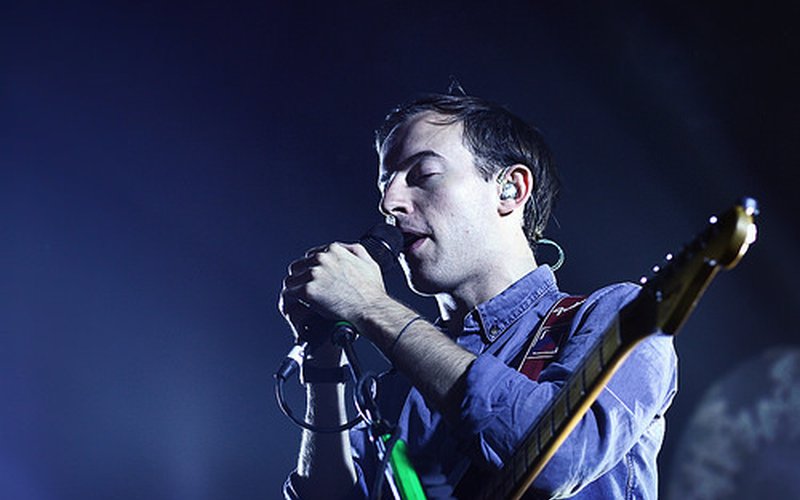
A good way to see how far a band has come is to look at where they began. Case in point, one of 2013's more enjoyable internet moments was when someone unearthed an old image of Radiohead during their college days. Thom Yorke and co. look goofy, amiable, and exactly the sort of people that would have a band portrait and not the Killers album cover as their Iron Maiden poster of choice. It's funny because those guys went on to be, you know, Radiohead. Not to compare the two bands' bodies of work, but there's a comparable amount of gawkiness to Bombay Bicycle Club's early days – when they played their first Glastonbury afternoon set on the small Park stage in 2009, half the band were wearing shorts and t-shirts. But the Bombay Bicycle Club that arrived onstage at the Showbox for their second Seattle appearance behind their fourth (and best) album, So Long, See You Tomorrow bore little resemblance to those lads. The London quartet (with two touring members in two) were sharply dressed, confident, and, aware that they're a band on the brink of breaking through to a bigger level, played like they've already made the jump.
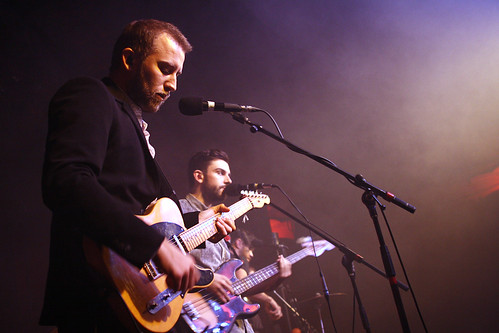
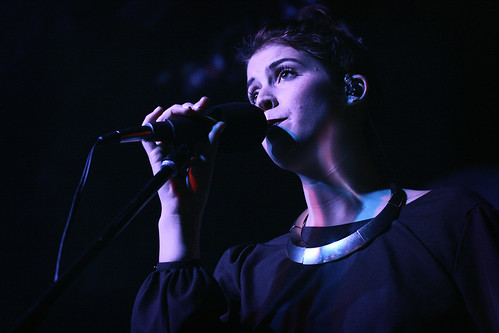
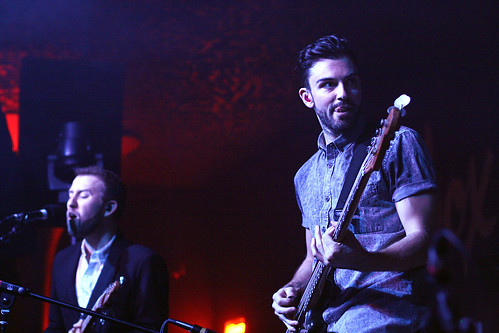
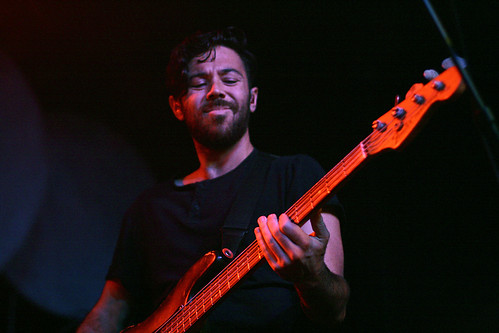
Preceding Bombay Bicycle Club were the Los Angeles quintet Milo Greene, who are spending the jaunt primarily airing out new material ahead of the January release of their forthcoming album, Control. Milo Greene's recorded work gets tagged as folk more often than not, but judging by the general lack of acoustic instruments and prominence of more dance-oriented rhythms, the new material seems to be conscious step away from those sounds. Although the old material (like the always-reliable "1957") was still a great showcase for the band's instrument-swapping and vocal harmony prowess, new songs like "On The Fence" and "White Lies" impressed with their focus and precision, regardless of who was playing bass at that moment. The sleek, agile pace of the songs made a fitting counterpart to the material that BBC is currently touring behind, and since the band were playing to primarily new audiences, the clever choice to play new material doubled down on introducing themselves, and their new sound, made for a fitting warm up to.
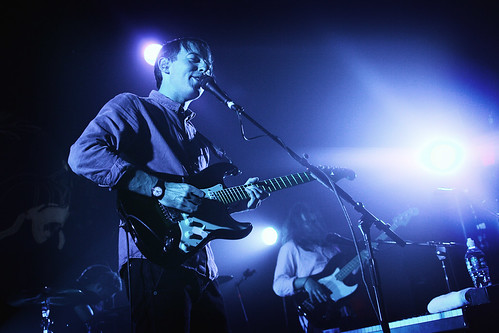
The primary reason Bombay Bicycle Club have thrived where so many of their post-Whatever People Say I Am... peers have not is their willingness, perhaps eagerness, to be a guitar-oriented band that doesn't really function like an archetypical English guitar band from the last twenty years. Their debut, 2009's I Had The Blues But I Shook Them Loose, was a promising but ultimately uneven debut, showing a band of teenagers that had plenty of chemistry but even more then-untapped potential. Remarkably, their next step was to go acoustic for 2010's Flaws. It was a move that could retrospectively be seen as laying ground for the breakthrough of the North London folk scene, but at the time it was puzzling – why would a band coming from a tradition of NME-hyped bands aim for intimate rather than something that would conquer Reading Festival? The answer to the question would come a year later in 2011's A Different Kind of Fix, a record that found the band embracing atmospheric keyboards, texturally-oriented guitar playing, and vocal contributions from Flaws collaborator Lucy Rose. A studio-intensive record that tapped into both the insular and magnificent veins of their previous records with even better results, A Different Kind of Fix showed that the band had spent more time taking notes than partying during their brisk ascent the last two years because they didn't want to be the biggest band in the world – they wanted to be the best.
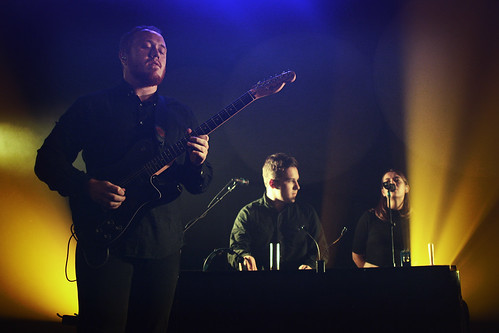
With the release of So Long, See You Tomorrow, they made a case for both points – they're increasingly a critical success and becoming a festival staple on both sides of the Atlantic. A large part of that is because Bombay Bicycle Club have figured out how to reconfigure the elements of their back catalog into a diverse, wide-reaching setlist. Equipped with a dedicated keyboardist and vocal foil to frontman Jack Steadman, they're no longer limited to a two guitars/bass/drums setup, and more than 90% of the bands that have them, BBC maximizes their auxiliary players. Vocalist Liz Lawrence's voice falls somewhere in between those of BBC's studio vocalists (Rae Morris' bold wail and Lucy Rose's cool whisper), allowing her to slide to either end of the spectrum, taking over the meteoric bridge of "Luna", the languid call-and-response of "Home By Now", and the feathery dual harmonies of "Lights Out, Words Gone" with equal amounts of finesse. Likewise, keyboardist Louis Bhose added colorful flourishes and percussion to the more recent, sample-heavy material, allowing Steadman and guitarist Jamie MacColl to focus on holding down the frontline with their complimentary guitar lines. While the rhythm section of bassist Ed Nash and drummer Suren de Saram sounded even more muscular than they do on record, it was MacColl and Steadman who pushed the show from "good" to "great". Steadman has grown into his own as a frontman, regularly interacting with the crowd throughout the night, and handily delivering the more emotive moments of the set ("Eyes Off You", "Shuffle"). Conversely, MacColl was key in channeling the more anthemic moments, adding fire to "How Can You Swallow So Much Sleep?", "Always Like This", and set-closer "Carry Me". Augmenting the new material was an acoustic section (which the band has only recently started regularly doing again) and sporadic airings of the best tracks from I Had The Blues..., and played by the band as triumphant hits rather than remnants from the past, they served as enjoyable reminders of how much this band has accomplished in just five years.
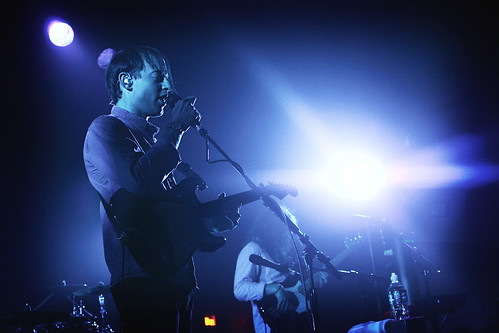
By the time December rolls around, Bombay Bicycle Club will have toured for close to the entirety of the year behind So Long, See You Tomorrow. That includes one month of promotional dates and appearances, two runs through mainland Europe, two United Kingdom legs, two North American legs, an exhaustive festival campaign, and trips to Australia and Asia. Comparatively extensive to not just the treks of their contemporaries but most tours in general, it's the longest and most exhaustive jaunt yet for the group. It's also particularly noteworthy because, as Arctic Monkeys proved earlier this year, enough touring can still lead to an English guitar band having massive success on both sides of the Atlantic. It's certainly a tough order – Alex Turner and co. have toured just as much in America as they did elsewhere and they're still nowhere near as popular here as they are in their homeland or Australia – but it's possible, and Bombay Bicycle Club are in a position similar to the one Foals were in a year ago. They've got the onstage chops, the catalog, and the charisma to break through in one or two more album cycles, and from there on out, it's headlining or bust by the time the band – now all 24 – is 30. So while they're taking a well-earned break after the tour, it's certain that they'll be spending it how to attain the global status that is, for the first time, finally within their reach.
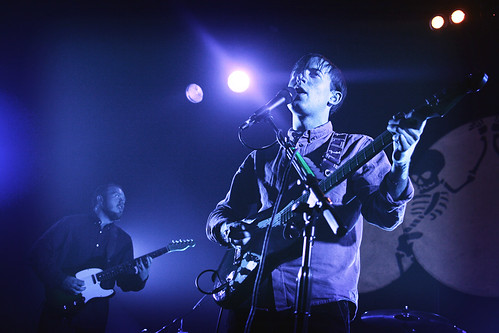
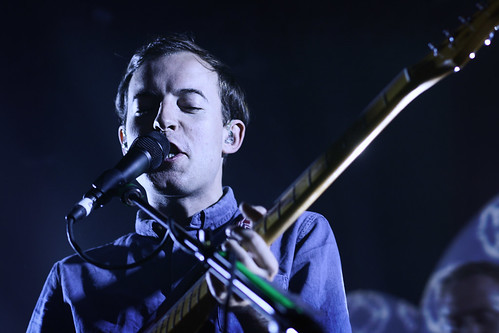
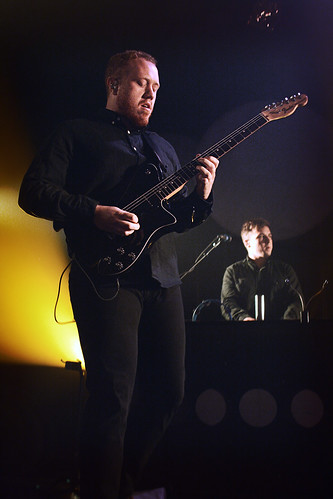
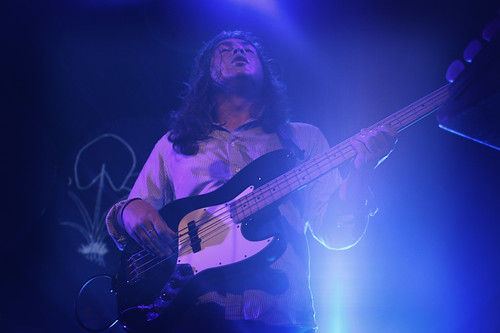
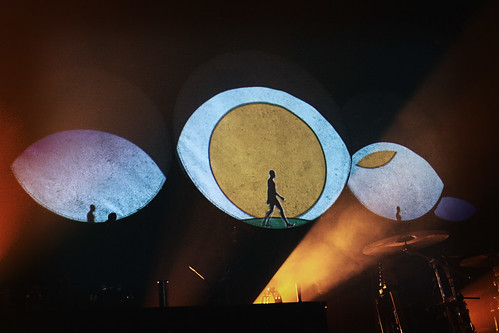
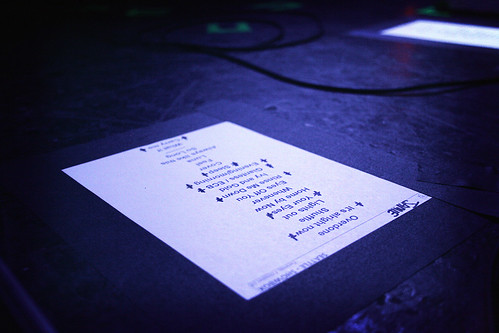
Toronto’s BADBADNOTGOOD’s first headlining show in Seattle proved that they have come a long way from their viral-video rap-cover roots, as the three-piece made some serious noise tearing through several familiar covers and even more originals from their debut album, III. With only a drum kit, elec…
There's an exterior section of the EMP where, when there's an ongoing performance in the Sky Church, the blue aluminum panels rattle and reflect the street lighting in a way that makes it seem like a small light show of its own. Of course, the more interesting light show is always inside the EMP, a…